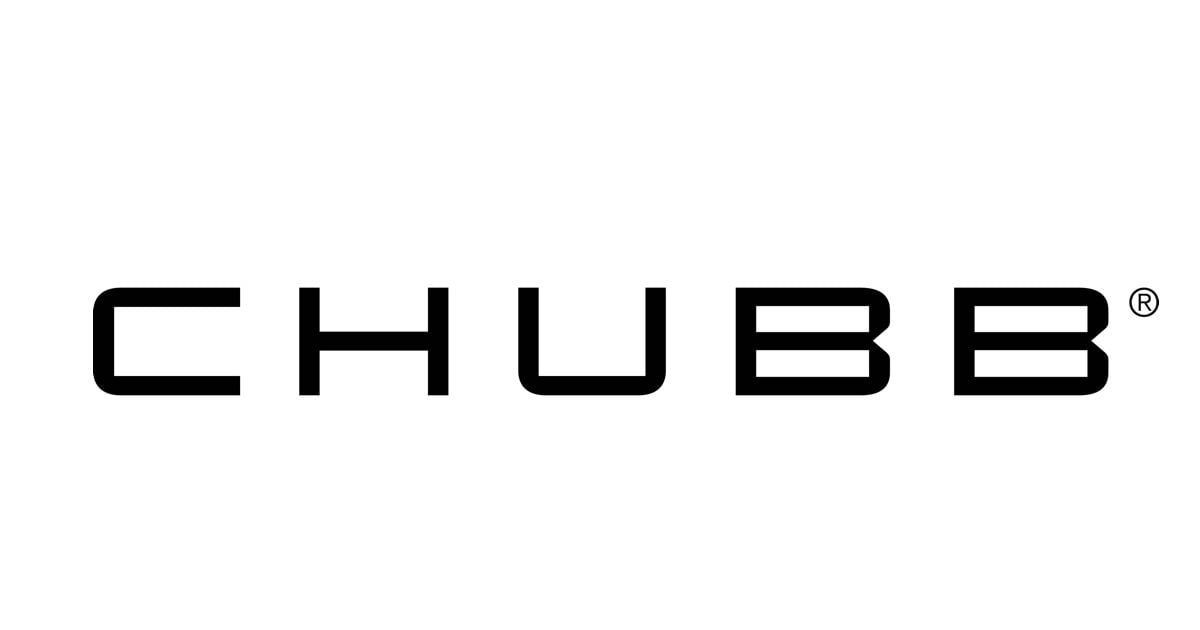Key takeaways
Chubb, USAA and Amica received some of the highest ratings in our analysis of home insurers in Delaware.
State Farm is the best cheap insurer in Delaware, with a star rating of 4.7 and an average annual premium of $1,025.
Chubb and USAA are among the best home insurance companies in Delaware, according to our analysis.
To help you find the best home insurance in Delaware, we gathered and analyzed data from insurance companies across the state. These are the insurers that earned 4.5 stars or more.
Rates are based on a sample homeowner with no recent claims, $300,000 of dwelling coverage, $300,000 of liability coverage and a $1,000 deductible.
Company | NerdWallet star rating | Average annual rate |
|---|---|---|
Not available | ||
Not available | ||
Not available | ||
$1,025 | ||
$1,265 | ||
Not available | ||
USAA* | Not available | |
*USAA membership is open only to active military, veterans, some federal employees and their families. | ||
Get home insurance quotes in minutes
Answer a few questions to see custom quotes and find the right policy for you.The best home insurance companies in Delaware
Below are more details about the best homeowners insurance companies in Delaware.
Note: Some insurance companies included in this article may have made changes in their underwriting practices and no longer issue new policies in your state.

Chubb
- Far fewer consumer complaints than expected for a company of its size.
- Standard coverage includes features that many companies offer only as extras.
- Perks to help you protect your home.
- Most consumers can't get a quote online and will instead need to contact a local agent.
Chubb caters to affluent homeowners, offering coverage other insurers often charge extra for. For example, the company’s policies include extended replacement cost coverage for the structure of your home. This is useful in case it costs more than your dwelling limit to rebuild after a disaster. Chubb’s standard policies also cover water damage from backed-up sewers and drains.
Policyholders with secondary or seasonal homes in Delaware are eligible for the company’s Property Manager service at no charge. With this service, a Chubb representative will check your home after a hurricane and report its condition to you. They can also help prevent further damage and submit a claim on your behalf.
» READ MORE: Chubb homeowners insurance review

Amica
- High customer satisfaction ratings and low consumer complaints.
- Platinum Choice package offers extra coverage.
- Dividend policies can return a portion of your premiums.
- You can start a quote online but may have to finish the buying process by phone.
Amica shines when it comes to customer service. It draws a very low rate of complaints compared to other insurers, according to the National Association of Insurance Commissioners. Amica also earned high marks in two recent J.D. Power surveys about home insurance and customer satisfaction.
The company stands out for its broad range of coverage options. For example, you can customize your policy with extra coverage above your dwelling limit. This could be useful in case your house costs more to rebuild than expected. You may also want to add coverage for identity theft or damage from backed-up drains.
» READ MORE: Amica homeowners insurance review

Cincinnati Insurance
- Various coverage options.
- Far fewer complaints than expected for a company of its size.
- Coverage available for higher-value homes.
- No online quotes.
- Very little information on website.
If you want to support companies that value sustainability, consider Cincinnati Insurance. In recent years, the insurer has reduced fossil fuel emissions from both its facilities and company vehicles. When you buy Cincinnati home insurance, you may be able to add a “green upgrade” endorsement. With this coverage, you can use eco-friendly materials to repair or rebuild your home after a claim.
The company offers a variety of other options, including comprehensive coverage for high-value homes. You may be able to add coverage for things like identity theft, personal cyber attacks or certain types of water damage.
» READ MORE: Cincinnati homeowners insurance review
State Farm
- User-friendly website.
- Agents offer personalized service.
- Policies generally include extra coverage for your home’s structure.
- Below average for claim satisfaction in a recent J.D. Power study.
As America’s largest home insurer, State Farm stands out for its long list of coverage options. Its policies generally include extra dwelling coverage in case it costs more than expected to rebuild your home.
You may be able to add coverage for things like identity theft and water damage from backed-up drains. Another option may be to add an inflation guard rider to your policy. This automatically increases your policy limits to keep up with rising costs.
» READ MORE: State Farm homeowners insurance review
Allstate
- Lots of discounts to help you save.
- Home-sharing coverage available.
- Many ways to customize your coverage.
- Ranked below average for consumer satisfaction in recent J.D. Power studies.
Allstate offers many ways to customize your policy, including replacement cost coverage for your personal property and coverage for water damage caused by backed-up drains. Other options may include reimbursement for replacing damaged items with energy-efficient versions and home-sharing coverage.
You may also be able to upgrade your policy with the Enhanced Package. One benefit of this package is Deductible Rewards, which takes $100 off your deductible when you sign up, plus an additional $100 off for each year you go without filing a claim. If you do file a claim, your rates won’t go up.
» READ MORE: Allstate homeowners insurance review

Openly
- Policies typically include guaranteed replacement cost coverage for your home's structure.
- Broad coverage for personal belongings.
- No restricted dog breeds.
- No online quotes.
Openly’s default homeowners policy goes significantly beyond those of many other insurers. Most notably, it offers guaranteed replacement cost coverage for the structure of your home. That means if your house is destroyed by a covered disaster, Openly will pay whatever it takes to rebuild it the way it was before.
Unlike many other insurers, Openly doesn’t have dog breed restrictions that could affect your ability to get liability coverage. It may also be a good bet for homeowners with collections of jewelry or other valuables, with up to $100,000 of blanket coverage available for these items.
» READ MORE: Openly homeowners insurance review

USAA
- Policies include standard coverage that often costs extra elsewhere.
- Fewer customer complaints to state regulators than expected for a company of its size.
- Perks for military homeowners.
- Available only to active military members, veterans, some federal employees and their families.
USAA sells homeowners insurance to active military members, veterans, some federal employees and their families. If that’s you, you may want to consider USAA.
The company offers some perks that are specific to members of the military, like deductible-free coverage for military uniforms and equipment. USAA will also waive your deductible if your personal property is damaged or lost due to war.
USAA homeowners insurance has certain features that many insurers charge extra for. For example, USAA covers your personal belongings on a replacement cost basis. Many companies pay only what your items are worth at the time of the claim.
» READ MORE: USAA homeowners insurance review
- See all NerdWallet home insurance reviews
How much does homeowners insurance cost in Delaware?
The average annual cost of home insurance in Delaware is $1,025. That’s 51% less than the national average of $2,110.
In most U.S. states, including Delaware, many insurers use your credit-based insurance score to help set rates. Your insurance score is similar but not identical to your traditional credit score.
In Delaware, those with poor credit pay an average of $2,375 per year for homeowners insurance, according to NerdWallet’s rate analysis. That’s 132% more than those with good credit.
Average cost of homeowners insurance in Delaware by city
How much you pay for homeowners insurance in Delaware depends on where you live. For instance, the average cost of home insurance in Wilmington is $955 per year, while homeowners in Dover pay $1,025 per year, on average.
City | Average annual rate | Average monthly rate |
|---|---|---|
Bear | $905 | $75 |
Bridgeville | $1,090 | $91 |
Camden Wyoming | $1,155 | $96 |
Claymont | $905 | $75 |
Clayton | $940 | $78 |
Dover | $1,025 | $85 |
Felton | $1,025 | $85 |
Georgetown | $1,090 | $91 |
Harrington | $980 | $82 |
Hockessin | $895 | $75 |
Laurel | $1,200 | $100 |
Lewes | $1,315 | $110 |
Magnolia | $1,025 | $85 |
Middletown | $1,025 | $85 |
Milford | $1,235 | $103 |
Millsboro | $1,310 | $109 |
Milton | $1,215 | $101 |
New Castle | $995 | $83 |
Newark | $920 | $77 |
Rehoboth Beach | $1,495 | $125 |
Seaford | $1,200 | $100 |
Selbyville | $1,470 | $123 |
Smyrna | $930 | $78 |
Townsend | $1,025 | $85 |
Wilmington | $955 | $80 |
The cheapest home insurance in Delaware
Here are the insurers we found with average annual rates below the Delaware average of $1,025.
Company | NerdWallet star rating | Average annual rate |
|---|---|---|
Cumberland Mutual | Not rated | $750 |
$820 | ||
$890 |
Common risks for Delaware homeowners
Here are a few of the most common risks you may face as a Delaware homeowner, along with steps you can take to insure your home against them.
Hurricanes and wind damage
Hurricanes and coastal storms can damage your home, even without making landfall. Homeowners policies usually offer coverage for wind damage but not flooding.
Your policy may have separate deductibles for hurricane or wind claims. Suppose your policy has a $1,000 deductible for most claims and a 2% deductible for wind claims. If your house has $250,000 worth of dwelling coverage, you’d have to pay for the first $5,000 of wind damage yourself.
Flooding
Standard homeowners insurance won't cover flood damage, which means people in at-risk areas should consider buying flood insurance. Remember that while you can get coverage at any time, there’s typically a 30-day waiting period before it takes effect.
To check your flood risk, start by looking up your address on the Federal Emergency Management Agency's flood maps. However, FEMA’s maps don’t always capture all types of flood risk. You may want to check another source, like First Street, a private company that models climate hazards. Enter your address at the top of the page to see your home’s flood risk rating on a scale of 1 to 10.
» MORE: Should I get flood insurance?
Thunderstorms and hail
Home insurance generally covers storm damage, but keep in mind that hail damage may have a separate deductible.
Get home insurance quotes in minutes
Answer a few questions to see custom quotes and find the right policy for you.Delaware insurance department
The Delaware Department of Insurance oversees the state’s insurance industry. Its website provides consumer information and serves as a resource if you’re having a dispute with your insurer. If you need to file a complaint against your insurer, you can do so on the agency's website. You can also reach out to the department at 800-282-8611 or consumer@delaware.gov.
How we rate homeowners insurance
NerdWallet’s star ratings reward companies for consumer-first features and practices. We evaluate factors such as consumer experience, coverage, discounts and financial strength.
In our research, we analyzed:
More than 270 million homeowners insurance rates.
More than 100 insurance companies.
Nearly 200 homeowner profiles.
View our complete homeowners insurance rating methodology.
- Find home insurance in other states
Frequently asked questions
Is homeowners insurance required in Delaware?
Is homeowners insurance required in Delaware?
Homeowners insurance isn't legally required in Delaware. However, your lender may require you to purchase homeowners insurance. For more information, read Is Homeowners Insurance Required?
How can I save money on homeowners insurance in Delaware?
How can I save money on homeowners insurance in Delaware?
There are several ways to save money on home insurance in Delaware:
Shop around to make sure you’re getting the best rate.
Choose a higher deductible. In case of any claims, you’ll pay more out of pocket, but your premiums will be lower.
Bundle your home and auto insurance for a lower overall rate. See the best home and auto insurance bundles.
Ask your insurer if you qualify for any home insurance discounts.
Star rating methodology
NerdWallet’s homeowners insurance ratings reward companies for customer-first features and practices. Ratings are based on weighted averages of scores in several categories, including financial strength, consumer complaints, coverage, discounts, claims process and website functionality. These ratings are a guide, but we encourage you to shop around and compare several insurance quotes to find the best rate for you. NerdWallet does not receive compensation for any reviews or star ratings.
Here’s how we weighted each category to come up with our list of the best home insurance companies:
Consumer experience (40%).
Financial strength (30%).
Coverage (25%).
Discounts (5%).
Read our full home insurance ratings methodology for more details.
Homeowners insurance rates methodology
NerdWallet calculated median rates for 40-year-old homeowners from various insurance companies in the 25 largest cities in each U.S. state by population. All rates are rounded to the nearest $5.
Sample homeowners were nonsmokers with good credit living in a single-family, two-story home built in 1984. They had a $1,000 deductible and the following coverage limits:
$300,000 in dwelling coverage.
$30,000 in other structures coverage.
$150,000 in personal property coverage.
$60,000 in loss of use coverage.
$300,000 in liability coverage.
$1,000 in medical payments coverage.
We made minor changes to the sample policy in cases where rates for the above coverage limits or deductibles weren’t available.
In states where credit is a rating factor, we changed the credit tier from “good” to “poor,” as reported to the insurer, to see rates for homeowners with poor credit.
These are sample rates generated through Quadrant Information Services. Your own rates will be different.
Complaint methodology
NerdWallet examined complaints received by state insurance regulators and reported to the National Association of Insurance Commissioners in 2022-2024. To assess how insurers compare with one another, the NAIC calculates a complaint index each year for each subsidiary, measuring its share of total complaints relative to its size, or share of total premiums in the industry. To evaluate a company’s complaint history, NerdWallet calculated a similar index for each insurer, weighted by market shares of each subsidiary, over the three-year period.
NerdWallet conducts its data analysis and reaches conclusions independently and without the endorsement of the NAIC. Ratios are determined separately for auto, home (including renters and condo) and life insurance.

